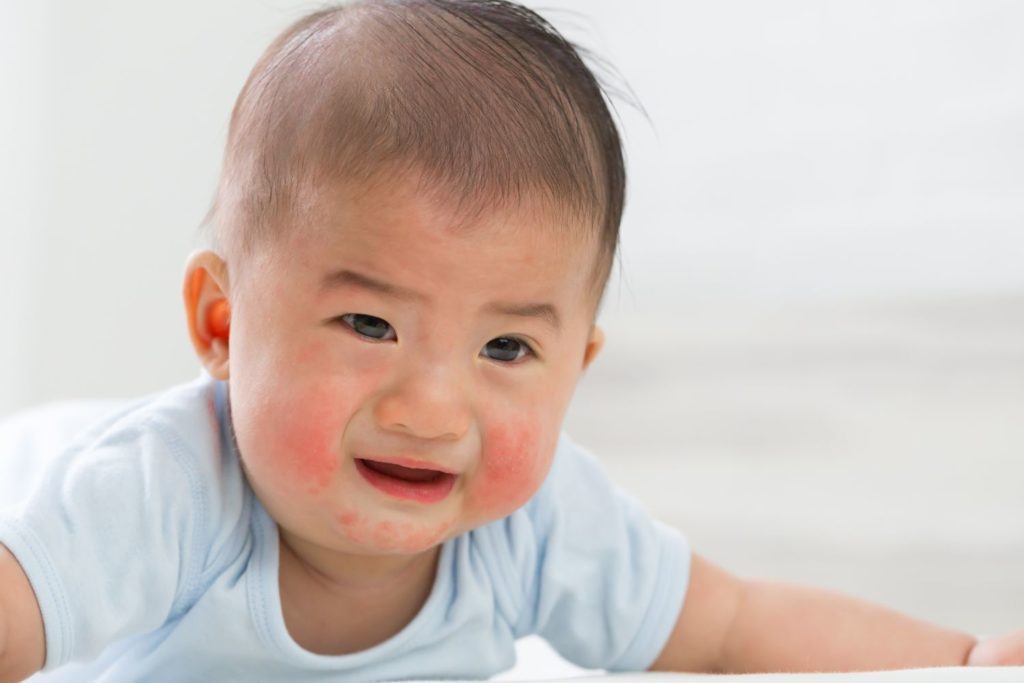Food allergies can be concerning, especially when it comes to your baby. Recognizing the signs early and knowing how to respond is crucial. Here’s when to ask your pediatrician about the signs of a food allergy in your baby and what you need to know.
Why Recognizing Food Allergies Matters
Identifying food allergies early can help prevent severe reactions and ensure your baby’s diet is safe and healthy. Proper management and guidance from your pediatrician are essential.
Signs It’s Time to Ask About Food Allergies
When should you discuss food allergies with your pediatrician? Here are some signs:
- New Foods: When introducing new foods to your baby’s diet.
- Reactions: If your baby shows signs of an allergic reaction after eating.
- Family History: If there’s a family history of food allergies.
Questions to Ask Your Pediatrician
When discussing food allergies, consider these questions:
- What are the common signs of a food allergy in babies?
- What foods are most likely to cause allergies?
- How can I safely introduce new foods to my baby?
- What should I do if I suspect a food allergy?
- Are there tests to confirm food allergies?
Common Signs of Food Allergies
Mild to Moderate Symptoms
- Skin Reactions: Hives, eczema, or redness on the skin.
- Gastrointestinal Issues: Vomiting, diarrhea, or abdominal pain.
- Respiratory Symptoms: Sneezing, runny nose, or coughing.
Severe Symptoms (Anaphylaxis)
- Difficulty Breathing: Wheezing or shortness of breath.
- Swelling: Swelling of the face, lips, tongue, or throat.
- Loss of Consciousness: Dizziness or fainting.
Common Food Allergens
Top Allergens
- Milk: Cow’s milk protein can cause allergic reactions in some babies.
- Eggs: Egg whites are more allergenic than yolks.
- Peanuts and Tree Nuts: Common allergens that can cause severe reactions.
- Soy: Soy protein can be allergenic for some babies.
- Wheat: Gluten in wheat can cause allergic reactions.
- Fish and Shellfish: Common allergens, especially in older babies.

Introducing New Foods Safely
One at a Time
- Single-Ingredient Foods: Introduce new foods one at a time, with a few days in between.
- Monitor Reactions: Watch for any signs of an allergic reaction after introducing a new food.
Age-Appropriate Foods
- Start with Low-Risk Foods: Begin with low-risk foods like fruits, vegetables, and grains.
- Introduce High-Risk Foods Gradually: Introduce high-risk foods like peanuts, eggs, and dairy gradually and with caution.
Allergen Introduction Guidelines
- Early Introduction: Introducing allergenic foods early (around 6 months) may help reduce the risk of developing allergies.
- Consult Your Pediatrician: Always consult your pediatrician before introducing high-risk allergens.
Steps to Take If You Suspect a Food Allergy
Immediate Actions
- Stop the Food: Immediately stop feeding the suspected allergen.
- Observe Symptoms: Monitor your baby’s symptoms closely.
Seek Medical Advice
- Contact Your Pediatrician: Call your pediatrician to discuss the symptoms and next steps.
- Emergency Care: Seek emergency medical care if your baby shows signs of anaphylaxis.
Allergy Testing
- Referral to Specialist: Your pediatrician may refer you to an allergist for further testing.
- Skin Prick Test: Commonly used to diagnose food allergies.
- Blood Test: Measures specific IgE antibodies to identify allergens.
Managing Food Allergies
Avoiding Allergens
- Read Labels: Always read food labels carefully to avoid allergens.
- Cross-Contamination: Be aware of cross-contamination risks in food preparation.
Emergency Plan
- Emergency Medications: Have prescribed medications, such as antihistamines or epinephrine, on hand.
- Action Plan: Develop an action plan with your pediatrician for managing allergic reactions.
Nutritional Considerations
- Alternative Foods: Find safe and nutritious alternatives to allergenic foods.
- Dietary Balance: Ensure your baby’s diet remains balanced and provides all necessary nutrients.
Recognizing and managing food allergies in your baby is essential for their health and safety. By understanding the signs, introducing new foods cautiously, and seeking medical advice, you can navigate food allergies effectively. Don’t hesitate to reach out to your pediatrician for guidance and support.

